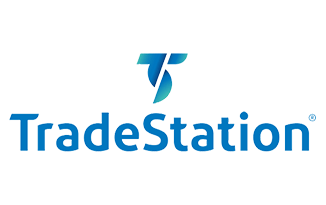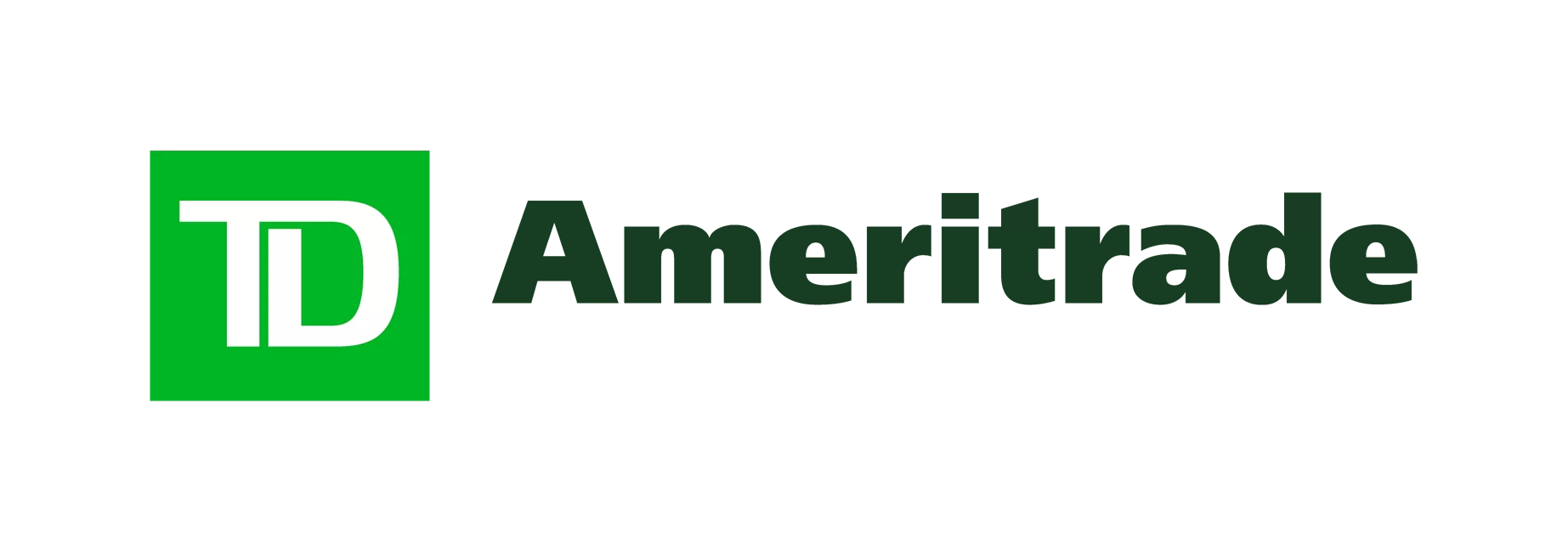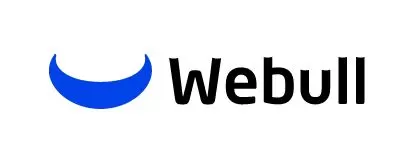Online trading is all the rage these days, and it's not likely to go away anytime soon. That's why we decided to take a look at the best online trading platforms.
Keep in mind that this list will focus more on full-featured trading platforms, so you won't see any stripped-down mobile trading apps here.
Everyone has different trading goals, and some of these may seem like overkill if you aren't an active investor. Nevertheless, all of these online trading platforms will allow you to do everything you need to do.
Of course, every platform is different, and some have more features than others. Thus, this list should help you find the best trading platform for your style of trading.
Best Online Trading Platforms 2021: Overview
Trading Platform | Best For | Minimum Deposit |
|---|---|---|
Everyday investing | $0 | |
Web interface | $500 | |
Simple trading interface | $0 | |
Investment options | $0 | |
International trading | $0 | |
Financial planning | $1 | |
Active Traders | $0 | |
Day traders | $0 | |
Three trading interfaces | $2,500 |
TD Ameritrade
TDA has $0 commissions for stock, ETF, and options trades. The only fee that applies is a $0.65 fee for options contracts. The low fees mean most of your trades will be completely free.
Another great thing about TD Ameritrade is that it is good for both beginners and more advanced traders. That's because it has advanced technical indicators and charting tools for more advanced users in addition to extensive educational content for newer traders.
In addition, TDA has lightning-fast execution speed at 0.05 seconds, meaning it's ideal for day traders. It also has an excellent mobile app, paper trading, and brick-and-mortar locations. TD pretty much does it all.
Pros:
Cons:
E*TRADE
This online trading platform also has an excellent interface and extensive educational content. And, of course, it has $0 commissions and a wide array of investments available.
Specifically, E*TRADE offers stocks, bonds, ETFs, options, futures, mutual funds, and CDs. Most robo-advisors don't offer so many different choices. Of course, the trade-off is that you have to manage your own investments on E*TRADE.
Fortunately, this online trading platform is easy to use and works with multiple research providers, bringing you some of the best data available. Plus, its web and mobile applications are excellent. Its execution speed is 0.54 seconds, making it noticeably slower than other options here.
Pros:
Cons:
Webull
Webull is a newer trading platform, having only launched in 2017. Still, it manages to bring a solid trading experience.
While it isn't quite advanced as TD Ameritrade or E*TRADE, this online trading platform has plenty of features. And with the exception of certain add-ons, there is no membership fee and $0 commissions.
This trading platform allows you to trade stocks and ETFs. It also has crypto and margin trading, which is still something of a rarity. It does however lack bonds and mutual funds trading.
Webull's execution speed isn't quite as fast as TDA's meaning it may not be the best for day traders. Still, it has an excellent interface across devices and fairly robust analysis tools. Read our Webull review to learn more.
Pros:
Cons:
Fidelity

This online trading platform has excellent execution time at 0.08 seconds and a price improvement rate of 85.82%. Plus, it has some of the best research and trading tools around.
As with most online trading these days, Fidelity offers $0 trading commissions and a great mobile app, too. The mobile app even has fractional shares. Fidelity lets you trade a variety of different asset types, including options--all commission-free, of course.
Although it doesn't directly affect your fees, it's worth noting that Fidelity is one of the only brokers that doesn't sell its clients' order flows.
Pros:
Cons:
Charles Schwab
Schwab offers a fairly robust set of tools for charting, with a number of technical indicators. You can trade stocks, bonds, and ETFs, as well as futures at Schwab. It also offers annuities, options, and even international stocks and forex.
Schwab also recently joined the ranks of those offering fractional shares, which it calls Stock Slices. Of course, it also has a mobile app which works quite well for trading. Plus, its SmartEdge stock screener is excellent.
Schwab has a 93.7% price improvement rate and 0.08-second execution time, making it slightly better than Fidelity overall on those metrics.
Pros:
Cons:
SoFi Active Investing

For the purposes of this article, we will focus more on Active Invest. The good news about this trading platform is that it has commission-free trading. Plus, it allows you to buy crypto, which other platforms still lack.
Another way in which SoFi stands out is that it offers access to certified financial advisors (CFPs) for no additional charge. Plus, the platform itself has no monthly fees.
That being said, SoFi Active Invest is not ideal for very active traders and day traders. It lacks many of the advanced features some other platforms here have, and its charting is quite basic. For more information about this online trading platform, see our SoFi Invest review.
Pros:
Cons:
TradeStation
TradeStation is an online trade platform best suited to more serious, more advanced traders. And its addition of commission-free trading helps it appeal to all investors.

Are mutual funds and ETFs not your thing? Do you prefer to actively trade assets such as stocks, futures, and options? If so, TradeStation will be more suited to your needs that other platforms on this list. As an added bonus, it also offers crypto trading.
TS's web platform is good, but its desktop platform is even better, offering many advanced trading features. It offers a $9.00 average price improvement and 0.092-second order execution time.
Passive investors may be happier elsewhere, though, as there is a $35 annual fee for IRA accounts. Also, TS Go has no minimum deposit, but the more advanced TS Select has a $2,000 minimum.
Pros:
Cons:
Interactive Brokers
Interactive Brokers (IBKR) is another online trading platform that is best suited to more advanced traders. It packs a ton of trading tools and advanced analysis for day traders and active traders
Stocks, options, and futures are available on IBKR, and you can actually trade 24/7. Thus, this is often the platform of choice for the most serious investors. Plus, its desktop platform is top-notch, while its margin rates are incredibly low.
In addition to the benefits mentioned above, IBKR has some of the fastest order execution and price improvements. Plus, the platform works to maximize rebates. Overall, this is an excellent platform for serious traders.
Pros:
Cons:
Zacks Trade
Zacks Trade offers trading for $0.01 per trade, making it an interesting option compared to other online trading platforms. It also has a sold trading platform.

Zacks Trade has a feature-packed trading platform where you can trade stocks, bonds, options, and more. It also has three different trading interfaces for beginner, intermediate, and advanced traders.
It also has plenty of advanced research and excellent mobile trading. Plus, Zacks doesn't charge extra for broker-assisted trading, unlike many online trading platforms.
One potential downside to Zacks is that it has a $2,500 minimum. That isn't a problem for day traders though, as day traders must maintain $25,000 in minimum equity.
Pros:
Cons:
Which Online Trading Platform is Best?
Every online trading platform has its own set of pros and cons. It is for this reason that there is a "best for" column in the table just after the introduction. Plus, every trader has a different trading style and different features they consider a "must have."
That being said, there are certainly some things to consider when choosing a trading platform. It helps to start with a few trading platforms that offer paper money to help you get a feel for how trading works.
If you aren't familiar with paper money, it means you are trading with "fake" money. In other words, you are able to execute real trades without putting real money in. But, of course, your paper money isn't worth anything, either. It's like trading with Monopoly money.
The point of this is to help you learn how to trade--and to make mistakes from which you can learn without losing real money.
Some online trading platforms that have paper money include TD Ameritrade, Webull, and TradeStation. We do feel that TD Ameritrade is a solid platform overall, but some also like Webull, especially those looking for a good Robinhood alternative.
So, it mainly comes down to personal preference and how you are looking to trade.
What is the Best Stock Trading Website for Beginners?
If you are looking for a good stock trading website for beginners, a good starting point is Webull, TD Ameritrade, or E*TRADE. The former is good for its ease of use, and the latter two are good especially for their extensive educational content.
Again, it depends upon how serious you intend to get with your trading. If you want to day trade full-time, you may end up on a platform like Interactive Brokers.
Also a factor is how much previous trading knowledge you have. For the true beginner, it's worth considering that Fidelity, Schwab, and TD Ameritrade have brick-and-mortar locations if you need extra help.
Where Can I Trade For Free?
These days, just about every online trading platform and stock broker has little to no commissions. Some fees do apply here and there, including those on options contracts and fees from the SEC and FINRA.
Thus, I wouldn't worry too much about fees. Any fees you do encounter will likely be so small as to be negligible. Of course, it's always worth searching "(Broker name) + fees" just so you know the specifics before signing up.
That being said, if you encounter an online trading platform that is still trading several dollars for trades, it is almost certainly worth looking elsewhere. That's especially true if you intend to day trade; there are just so many options, and hefty fees will eat into your profits too much.
What Are The Best Stocks to Buy For Beginners?
That will vary depending on your goal. To give an example, growth stocks may offer high rates of return but may also be more volatile. Of course, it also depends upon whether you are trading actively or more passively.
All that being said, for complete beginners, a good starting point would be blue-chip stocks. These stocks are from established companies such as Apple and Amazon but still offer some growth. You often see these suggested with Motley Fool stock picks.
And as mentioned earlier, another good idea for beginners is to start with paper trading. Online trading platforms such as TD Ameritrade, Webull, and TradeStation include paper trading. This way, you are able to get a feel for trading without making costly mistakes.
Which Online Trading Platform is Right For You?
As usual, the answer is "it depends." If you are serious trade and want to trade for a living, a platform like Interactive Brokers or TradeStation will work best. However, not everyone needs that level of advanced trading tools.
If you aren't sure where to start, you can always give paper trading a try. We also like that Zacks trade offers three different trading platforms, which can help you figure out what works best for you.
And if you prefer a simple trading platform, we recommend SoFi Active Invest. Read our SoFi Invest review to learn more.

 By: Bob Haegele
By: Bob Haegele



